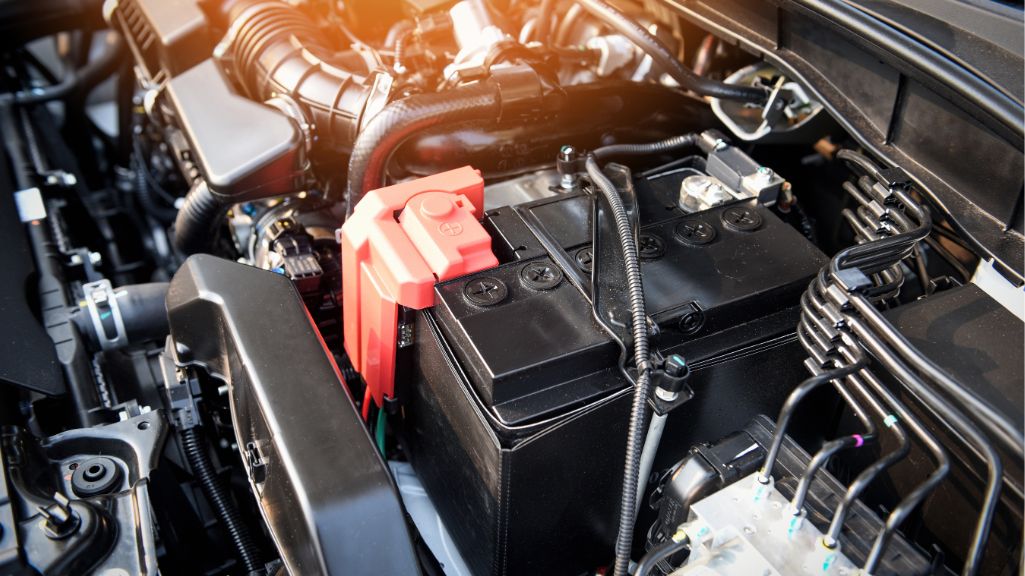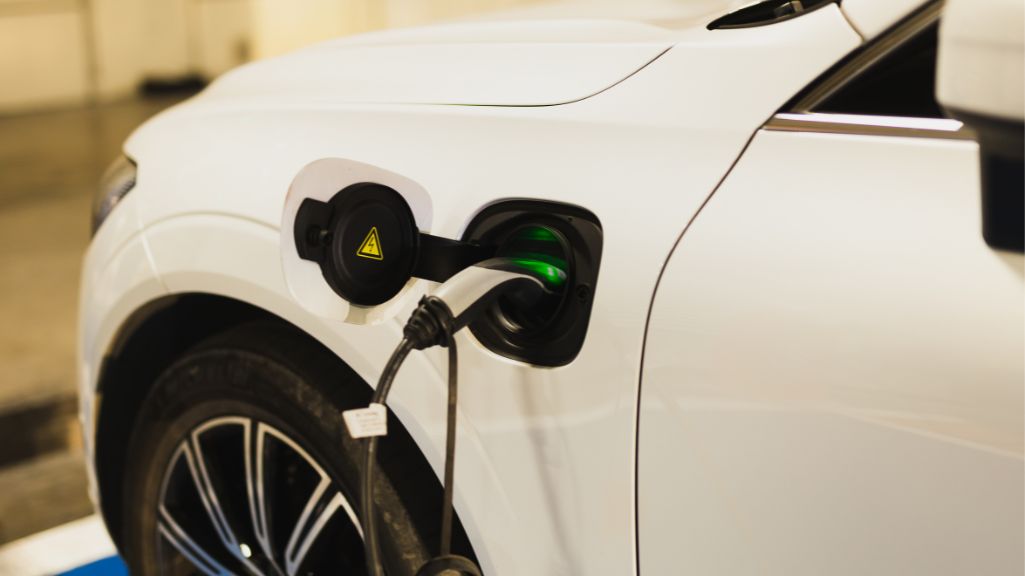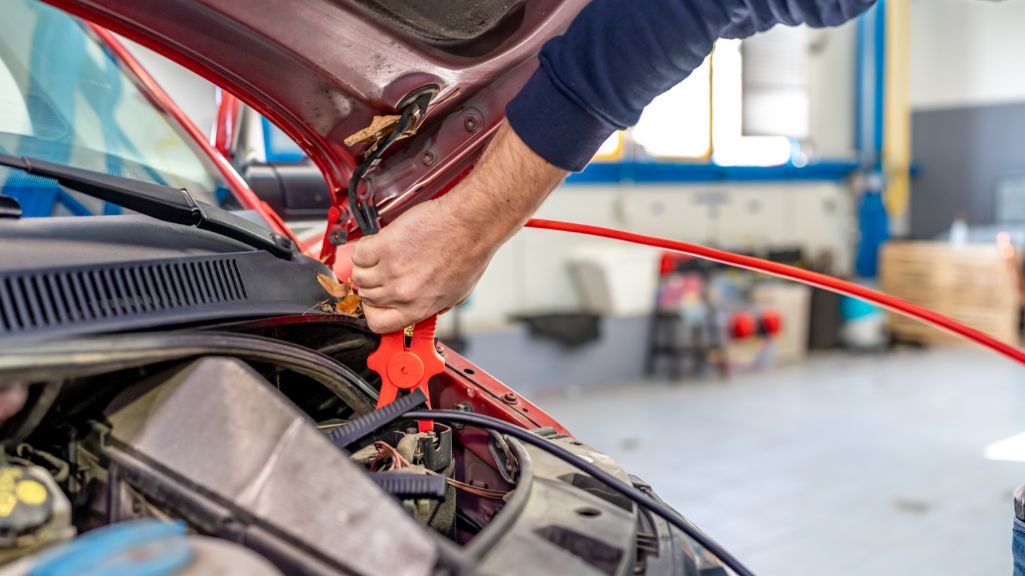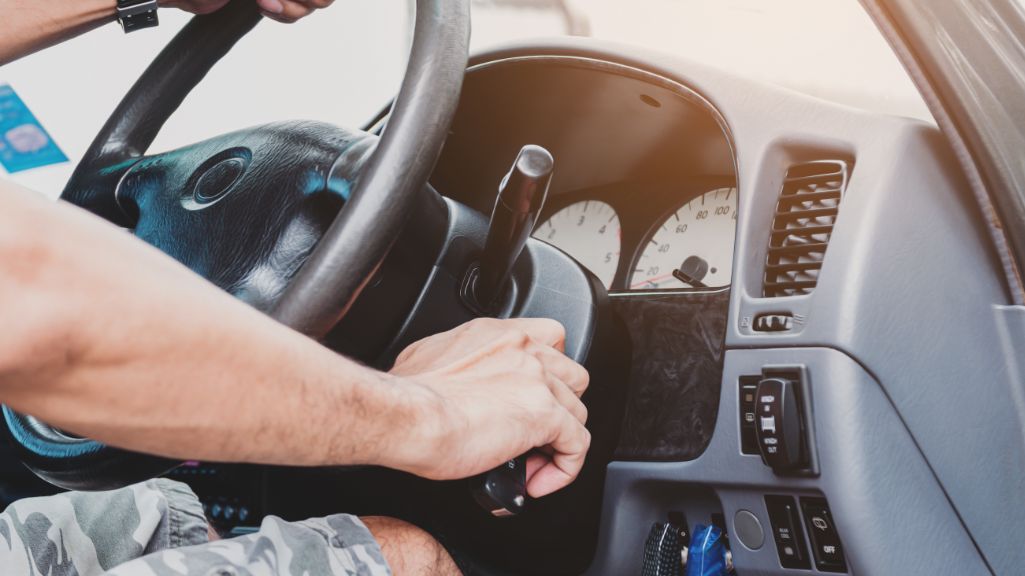As a car owner, there’s nothing more frustrating than getting into your vehicle, turning the key, and nothing happens. The dreaded silence can be a sign that your car won’t start, but fear not! In this troubleshooting guide, we will explore the common reasons why a car won’t start and provide you with the knowledge needed to get back on the road.

Checking the battery: Signs of a dead or weak battery
One of the most common culprits behind a car that won’t start is a dead or weak battery. Before jumping to conclusions, it’s important to check for signs of a battery issue. If you turn the key and hear a clicking sound or notice that the lights on your dashboard are dim, it’s likely that your battery is the problem.
To test the battery, you can use a multimeter to measure its voltage. A fully charged battery should read around 12.6 volts. If the voltage is significantly lower, it’s time to recharge or replace the battery. Additionally, inspect the battery terminals for any corrosion. If present, clean them with a mixture of baking soda and water.
Testing the alternator: How to determine if the alternator is the problem
While a dead battery may be the initial culprit, the root cause of the issue could lie with the alternator. The alternator is responsible for charging the battery while the engine is running. If it fails to do so, your car’s electrical systems will drain the battery, and eventually, your car won’t start.
To determine if the alternator is the problem, you can conduct a simple test. Start your car and use a voltmeter to measure the battery voltage. It should read around 13.8 to 14.5 volts. If the reading is significantly lower or higher, it’s a sign that the alternator is malfunctioning. In such cases, it’s essential to have the alternator checked and, if necessary, replaced by a professional.

Signs of a faulty starter: What to look for when the car doesn't respond when turning the key
If your car doesn’t respond at all when you turn the key, it could indicate a faulty starter. The starter is responsible for initiating the engine’s combustion process, and if it fails, your car won’t start. To identify if the starter is the issue, there are a few signs to look out for.
Firstly, listen for a clicking sound when you turn the key. This sound is an indication that the starter solenoid is engaging but failing to turn the engine over. Additionally, if you notice a grinding noise while attempting to start the car, it could mean that the starter’s gears are worn out. In either case, it’s best to have a professional diagnose and repair the starter to ensure proper functioning of your vehicle.

Checking the ignition switch: How to diagnose if the ignition switch is causing the issue
The ignition switch is another component that can cause your car to fail to start. If you turn the key and nothing happens, it’s worth investigating the ignition switch as a potential culprit. A faulty ignition switch can prevent power from reaching the starter and immobilize your vehicle.
To diagnose the ignition switch, begin by checking if the dash lights turn on when you turn the key to the “On” position. If the lights don’t illuminate, it’s likely an issue with the ignition switch or a related component. Additionally, try jiggling the key in the ignition while turning it. If the car starts intermittently or when the key is in a particular position, it indicates a faulty ignition switch. In such cases, consult a professional to repair or replace the ignition switch.

Fuel system troubleshooting: Steps to take if the car cranks but won't start
If your car cranks but fails to start, the problem may lie within the fuel system. Several factors can cause fuel-related issues, such as a clogged fuel filter or a faulty fuel pump. To troubleshoot the fuel system, follow these steps:
– Check the fuel gauge to ensure you have enough fuel in the tank. It may seem obvious, but running out of fuel is a common mistake.
– Listen for a humming sound when you turn the key to the “On” position. This noise indicates that the fuel pump is functioning correctly. If you don’t hear anything, it’s likely that the fuel pump needs to be replaced.
– If you suspect a clogged fuel filter, consult your car’s manual to locate the filter and inspect it. If it appears dirty or clogged, it’s time for a replacement.
Other potential causes: Exploring additional reasons why your car won't start
Sometimes, the reasons behind a car that won’t start can be less obvious. Here are a few additional potential causes to consider:
- Faulty spark plugs: If the spark plugs are worn out or damaged, they can prevent the engine from starting. Inspect the spark plugs and replace them if necessary.
2. Ignition coil issues: The ignition coil is responsible for producing the spark that ignites the fuel in the engine. If it fails, your car won’t start. Have a professional test the ignition coil and replace it if needed.
3. Faulty sensors: Modern cars rely on various sensors to ensure proper functioning. If a sensor related to the engine management system is faulty, it can prevent the car from starting. An experienced mechanic can diagnose and replace the faulty sensor.
DIY solutions: Simple fixes you can try before seeking professional help
Before rushing to a mechanic, there are a few DIY solutions for you to try. These simple fixes may help get your car started without the need for professional assistance:
Jump-starting the battery: If the battery is dead or weak, jump-starting the car can provide enough power to start the engine. Connect jumper cables to a working battery or use a portable jump starter.
Cleaning corroded battery terminals: As mentioned earlier, corroded battery terminals can disrupt the electrical connection. Clean the terminals using a mixture of baking soda and water to remove the corrosion.
Tapping the starter motor: In some cases, a faulty starter motor can be temporarily revived by tapping it with a wrench or a mallet. This method can help get the car started, but it’s not a permanent fix. Replace the starter motor as soon as possible.
When to call a professional: Signs that indicate it’s time to take your car to a mechanic
While DIY solutions can be helpful in certain situations, there are instances where it’s best to call a professional. Here are some signs that indicate it’s time to take your car to a mechanic:
Multiple failed attempts to start the car: If you’ve tried various troubleshooting steps and your car still won’t start, it’s time to seek professional help. A mechanic will have the expertise and tools to diagnose and repair the issue.
Unusual smells or smoke: If you notice unusual smells, such as a strong odor of gasoline, or see smoke coming from under the hood, it’s crucial to stop attempting to start the car and contact a mechanic immediately. These signs indicate a potentially dangerous situation.
Strange noises: If your car makes strange noises while attempting to start, such as grinding or screeching sounds, it’s best to have a professional inspect the vehicle. These noises can indicate serious mechanical problems.
Recap of troubleshooting steps and final tips
Troubleshooting a car that won’t start can be a frustrating experience, but armed with the knowledge from this guide, you can tackle the issue with confidence. Remember to check the battery, test the alternator, inspect the starter and ignition switch, troubleshoot the fuel system, and explore other potential causes. If all else fails, seek professional help and know when it’s time to call a mechanic. By following these steps and considering the alternator replacement cost, you’ll be back on the road in no time.
Remember, regular car maintenance and inspections can help prevent starting issues in the first place. Keep your battery charged, replace worn-out components promptly, and address any warning signs promptly to ensure your car starts reliably.
Get Reliable Roadside Assistance Anytime, Anywhere!
Stay prepared and stay on the move with our nationwide roadside assistance service. We’ve got you covered, no matter where the road takes you!